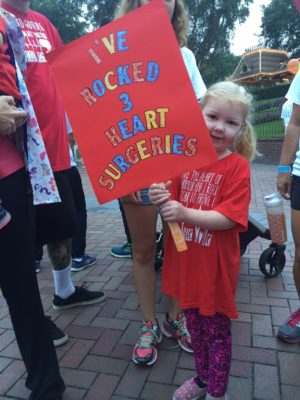Interview insights from Dr. Anthony Chang, chief intelligence and innovation officer; Dr. Alfonso Limon, senior data scientist; and Debra Beauregard, director of the Sharon Disney Lund Medical Intelligence, Information, Investigation and Innovation Institute (MI4) at CHOC.
ChatGPT and your child’s health: What parents need to know
With Artificial Intelligence (AI) tools like ChatGPT becoming part of everyday life, many parents are turning to them for quick answers, even on sensitive topics like their child’s health. But is it safe? While ChatGPT can offer general advice, it’s important to understand where its strengths end and when professional guidance should start. This Safety Awareness Month, we explore how to use AI tools wisely, and safely, when it comes to your child’s well-being.
The benefits of using ChatGPT for your child’s health
ChatGPT offers parents unprecedented access to medical information that was once reserved primarily for clinicians. It can serve as a “medical wingman,” helping families generate questions to ask their healthcare providers or better understand a diagnosis or treatment plan.
By using ChatGPT, parents can come more prepared to medical visits, enabling more meaningful and informed discussions with their child’s healthcare team, although it is always important, however, to fact-check whenever possible.
In some cases, the use of AI has encouraged families to raise valuable points that clinicians may then explore further, fostering a collaborative, 360-degree learning experience to support the best outcomes.
Additionally, ChatGPT can support daily wellness topics such as sleep habits and basic nutrition, which are often safer areas for parents to explore, though it’s still important to remain cautious about potential misinformation.
The risks and limitations of ChatGPT in pediatric health
Despite its benefits, there are important risks parents need to understand when using ChatGPT for their child’s health:
- AI is not a substitute for professional care: ChatGPT is not a doctor. It should never replace professional medical advice, diagnosis or treatment. Parents should always confirm any findings or suggestions with their child’s healthcare provider.
- Hallucinations and misinformation: While modern large language models are more accurate than ever, ChatGPT can still provide incorrect or misleading information. This risk increases in pediatric cases due to less available data compared to adult health.
- Privacy concerns: Parents should avoid entering personal identifying information such as names, dates of birth, or detailed medical records into ChatGPT, especially on free platforms, as this information could be stored or shared in unintended ways.
- Over or under-interpretation: Parents might misinterpret or over-rely on ChatGPT’s responses. Some clinicians worry that this might lead to delays in seeking proper medical attention if parents rely too heavily on AI.
Best practices for using ChatGPT for your child’s health
To use ChatGPT safely and effectively, consider these expert recommendations:
- Use it as a companion, not a replacement: Think of ChatGPT as a tool to supplement your discussions with healthcare providers. Use it to generate questions, better understand medical terminology or prepare for appointments.
- Practice good querying skills: Learn to ask focused, clear questions. For example, “What are five important questions to ask my child’s cardiologist about a heart murmur?”
- Verify with a professional: Always share ChatGPT findings with your child’s doctor. Use it as a starting point, not the final authority.
- Avoid sharing personal information: Do not input private health records or identifiable data including names, addresses or medical record numbers. Instead, describe conditions in general terms.
- Be cautious with complex or rare conditions: ChatGPT’s advice may contain inaccuracies, particularly in areas like pediatric specialties and rare diseases where reliable or comprehensive information is often limited.
Looking ahead: The future of ChatGPT in pediatric care
Experts believe that as AI tools improve, access to reliable, medically-informed AI will become commonplace and integral to patient empowerment, and within the next decade, parents will routinely use AI tools alongside clinicians to make well-informed decisions.
The key will be fostering a mindset of collaboration—where parents, clinicians, and AI tools work together, complementing each other’s expertise. This could transform how families approach health, making medical visits more productive and personalized.
Empowering parents without replacing doctors
ChatGPT for your child’s health offers exciting possibilities but requires cautious and informed use. Safety Awareness Month is a perfect time to remind parents that these tools are best used as guides and research assistants, not replacements for professional care.
By staying informed and maintaining open communication with healthcare providers, parents can harness the power of ChatGPT to better advocate for their child’s health—safely and smartly.
Get 24/7 Free Nurse Advice
The CHOC nurse advice line is available 24 hours a day, 7 days a week, 365 days a year. You can call the advice line after hours, even if your doctor’s office is closed.




